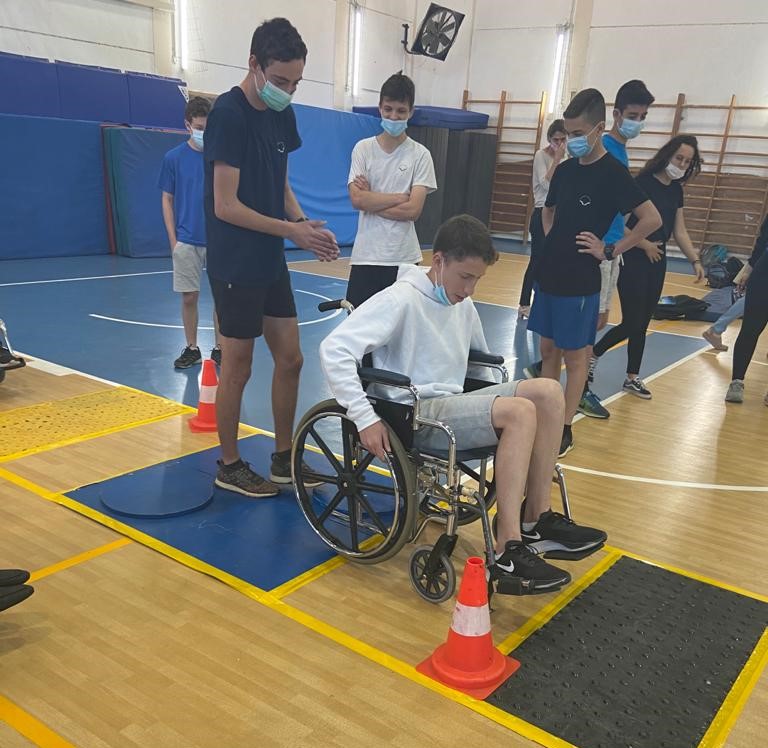By Bella Ingber
This past Wednesday, Access Israel hosted an activity in Modiin. The event was set up in workshops of four, each featuring someone living with a disability with the goal of educating Israel’s youth about various struggles those with disabilities face in society, while at the same time highlighting their capabilities and strengths.
The first workshop featured a movie about a boy with autism struggling to be in a mall because of the overstimulation. After, a woman on the spectrum spoke to the children and brought a real life story to the movie. After that, the class was led into the gymnasium, where they were talked to by a woman who lives her life in a wheelchair. Her interactive workshop included two stations: the first was a wheelchair “obstacle course” that mimicked to the best of it’s abilities what it is like to ride a wheelchair down a busy street, and the various hardships along the way that those able to walk would never even notice. There were pads with rough surfaces and fake grass to demonstrate common obstacles. At the second station kids put on gloves with wooden boards underneath their palms, and then tried to reassemble a children’s game. Many laughed at their incapability, but were also frustrated that such a simple task was almost impossible for them.

Outside, the students received blindfolds and were spoken to by someone with impaired vision. Then, two of the students were told to walk to the fence with a blindfold and then try and return to their seats. Again, they were unable to complete the task with ease (or at all). Even though they had an idea of where they were beforehand, they still couldn’t return to their original spots. The students’ admiration and respect for the woman was noticeable at the end of this station; she goes out and runs errands everyday, without even having a view of her surroundings first, whereas they were unable to find their way around the familiar school courtyard.
Lastly, inside the dance studio was a big table set up with headphones, and next to it was a deaf woman and her translator. She spoke to the children about the difficulties of those without hearing, but also about how comfortable she is and how she doesn’t feel that she is missing much. She has a family and a job and husband, which demonstrated how just because people have a disability does not make them incapable to be a part of society. She called up four of the students to put on headphones and then showed one of them a word on a piece of paper. The goal was to mouth the word down the line of four students and end with the original word by reading lips. Three consecutive times the kids failed.

At the end of the event, I asked a group of the students two questions at the door: what were your feelings before coming into this activity, and how have your feelings changed/what have you learned? Every single one of them told me that they came not knowing what to expect, and viewed the program as a way to get out of class schedule. However, as each workshop passed, they gained a newfound appreciation for themselves and their bodies. More importantly, they all said that they have such a large amount of respect for those living day to day with disabilities, doing the same things that they’re doing despite hardships. Each said that the relevance of each workshop – going to the mall, walking down the street, listening/speaking to friends – was very impactful, since for them, these are mundane and routine activities . Seeing how much others struggle with simple tasks, sometimes to the point where they can’t do them, was a shock. Many students had never really thought about or had much exposure to those with disabilities. All kids told me that they wish they experienced this type of event sooner, and that everyone in Israel should have a program like this. I wholeheartedly agree. Access Israel’s hands-on workshop undeniably left a lasting impression on these children, proving that while words are fleeting, experiences are forever.






